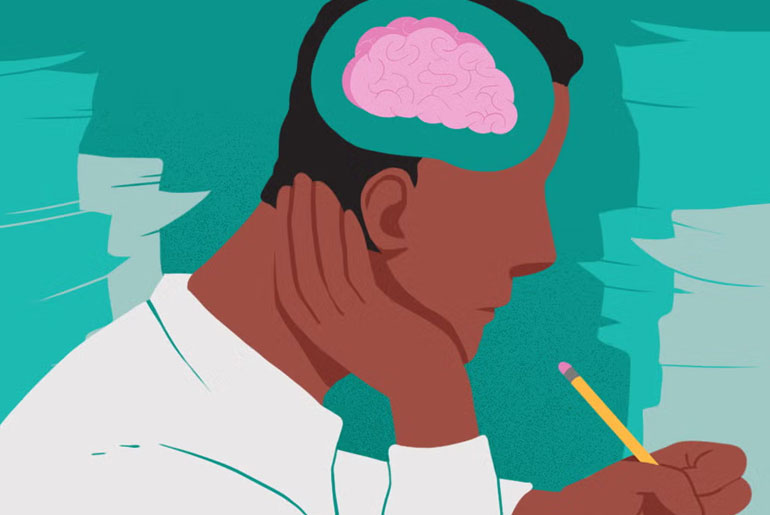can have an impact on one’s overall health. It can damage our mental health in addition to having an impact on the heart and brain. Dr. Neha Pandita, neurology consultant and clinical lead for Parkinson’s disease and movement disorders at Fortis Escorts, Okhla Road, New Delhi, discussed the effects of long-term stress on the brain in an interview with HT Lifestyle.
“When the body is constantly being put on alert, it releases stress hormones such as cortisol. Healthy in small amounts, repeated cortisol exposure over a period of time can weaken the hippocampus, which is the area of the brain that handles memory and learning. This may lead to problems with concentration, decision-making, and even cognitive decline later in life,” the neurologist stated.
Chronic stress and psychiatric conditions:
“Chronic stress also causes inflammation and disrupts neuron-to-neuron transmission. It has also been linked to psychiatric conditions such as anxiety, depression, and susceptibility to neurodegenerative diseases like Alzheimer’s. It can also decrease brain areas responsible for emotion regulation and self-command, hence making stress control more challenging in the long run,” stated Dr.
Advice for dealing with ongoing stress:
The physician also listed strategies for managing long-term stress and leading a better life:
1. Mindfulness and meditation: These techniques can raise the amount of gray matter in the brain and lower cortisol levels. Daily mindfulness increases focus, emotional control, and psychological resilience.
2. Physical activity: Exercise has been shown to be a powerful stress reliever. Weightlifting, yoga, and walking all lower anxiety and sadness while promoting the synthesis of BDNF, a protein that promotes normal brain function.
3. Good sleep habits: Prolonged stress can interfere with sleep, which impairs cognitive function. The key to stress reduction and brain renewal is keeping a regular sleep pattern and establishing a relaxing environment.
4. Balanced nutrition: Eating a diet rich in fruits, vegetables, lean meat, and omega-3 fatty acids helps to calm mood and support brain function. Reactions to stress can also be stabilized by reducing the use of processed foods, sugar, and caffeine.
5. Social connection and support: Strong bonds and support systems can serve as a protective barrier against the negative impacts of stress. Seeing a therapist, attending support groups, or having a conversation with friends may all help with coping and offer emotional comfort.
Disclaimer:
The information contained in this article is for educational and informational purposes only and is not intended as a health advice. We would ask you to consult a qualified professional or medical expert to gain additional knowledge before you choose to consume any product or perform any exercise.







